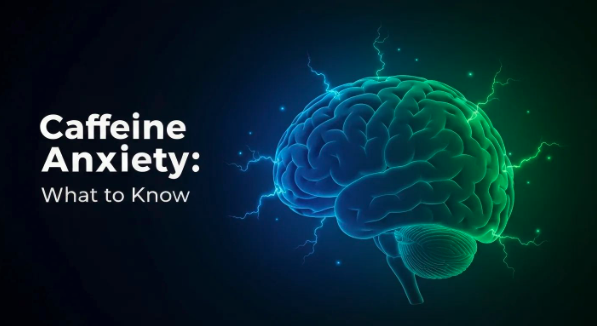The Impact of Chronic Illness on Mental Health
Exploring the Mental Toll of Long-Term Health Conditions

Understanding the Mental Health Implications of Chronic Illness
Chronic illnesses pose significant challenges that affect not only physical well-being but also mental health. This interrelation often leads to a cycle of worsening conditions, where managing both aspects becomes critical for achieving better health outcomes. Recent studies highlight the complex interaction between chronic diseases and mental health, underscoring the essential need for integrated care. This article explores how chronic illnesses impact mental health, the psychological challenges faced by patients and their families, and the strategies for effective coping and care management.
The Psychological Burden of Chronic Illness

How does chronic illness impact mental health?
Chronic illness significantly influences mental health, with many individuals facing a heightened risk for depression and anxiety. This is largely due to stressors that accompany chronic conditions, including ongoing physical challenges, lifestyle changes, and emotional burdens. Research indicates that people with chronic diseases, such as diabetes and heart disease, often experience higher rates of mood disorders compared to the general population.
Biological changes can further complicate mental well-being. For instance, individuals with Parkinson's disease may suffer from neurotransmitter imbalances that amplify feelings of anxiety and depression. Chronic pain and discomfort often lead to a vicious cycle, where worsening physical health lowers motivation for self-care, thereby exacerbating both physical and mental health issues.
Moreover, emotional responses to chronic illness, such as grief and denial upon diagnosis, can significantly impact mental health. Patients may grapple with feelings of hopelessness or frustration, which can manifest through irritability, fatigue, and social withdrawal.
Depression and anxiety related to chronic conditions
The interplay between depression and chronic health conditions is particularly concerning. Studies show that patients with chronic illnesses are often unable to receive adequate treatment for depression; as many as 50% of individuals with chronic diseases exhibiting depressive symptoms never receive proper diagnosis or therapy. This gap can severely impair daily functioning, as poor mental health directly affects the management of chronic conditions, leading to poorer clinical outcomes and increased healthcare costs.
Specific chronic conditions highlight this relationship. For example, individuals with cardiovascular diseases report higher instances of stress, anxiety, and depression, which complicate their treatment and management plans. A comprehensive approach that coordinates mental and physical health care can improve overall patient outcomes and quality of life, underscoring the necessity of addressing mental health alongside chronic illness management.
Understanding the Scope: How Chronic Diseases Affect Patients
In what ways does chronic illness affect patients?
Chronic illnesses pose significant challenges to patients, often leading to long-lasting health issues that necessitate continuous medical intervention and lifestyle adjustments. These conditions can exhibit a variety of symptoms, including not only visible health problems but also invisible ones such as chronic pain, fatigue, and significant mood disorders.
The emotional toll of living with a chronic disease can be severe. Patients may experience persistent feelings of irritability, anxiety, frustration, and hopelessness. This emotional burden doesn't just affect the individuals; it extends to family members as well, creating a ripple effect of distress within households. Such psychological challenges can further complicate the management of the physical condition, leading to a vicious cycle that diminishes overall quality of life.
Coping with these ongoing challenges often requires collaboration among various healthcare providers, encompassing specialists for both physical and mental health. Support mechanisms, including counseling and support groups, play a vital role in helping patients navigate their emotional difficulties.
Ultimately, while chronic illnesses may not be entirely curable, conscientious management strategies and support can facilitate a more normal and fulfilling daily life for patients, allowing them to optimize their health outcomes and psychological well-being.
Prevalence and Seriousness of Mental Health Issues in Chronic Illness

What statistics illustrate the prevalence of mental health issues among individuals with chronic conditions?
Statistics illustrate a significant prevalence of mental health issues among individuals with chronic conditions. For example, diabetes affects roughly 37 million Americans, with those diagnosed being 2 to 3 times more likely to develop depression. The CDC highlights alarming figures: 51% of Parkinson's patients, 42% of cancer patients, and 27% of diabetes patients experience depression.
Moreover, the repercussions of this comorbidity are severe. Patients with diabetes and depressive symptoms face a 46% increased risk of all-cause mortality. This connection emphasizes the serious consequences of untreated mental health disorders.
How does depression affect the management of chronic illnesses?
The presence of depression can significantly impair the self-management of chronic diseases. Many chronic conditions are exacerbated due to the effects of depression, which, in turn, diminishes motivation for self-care and adherence to treatment plans. For instance, individuals with asthma reported an average of 4.33 more days of poor mental health.
These statistics highlight the need for integrated care approaches that address both mental and physical health in chronic disease management. Proper treatment and awareness of mental health issues can markedly improve the quality of life for individuals living with chronic illnesses.
The Cycle of Physical and Mental Health Conditions
What are the main impacts of chronic disease?
Chronic diseases significantly impact individuals and society by being the leading cause of death and disability, accounting for 70% of all deaths in the United States.
These long-lasting conditions often lead to decreased productivity and increased healthcare costs, affecting quality of life for those impacted. Globally, chronic diseases contribute to premature deaths, even in regions where infectious diseases are prevalent. Effective management strategies, including behavior change and patient education, can help individuals control these conditions and potentially reduce healthcare expenses. Comprehensive approaches, such as those offered by the Center for Managing Chronic Disease, aim to empower patients and families, enhance care access, and improve overall health outcomes.
Bidirectional Relationship Between Chronic Diseases and Mental Health
Research clearly illustrates a bidirectional relationship, revealing how chronic illnesses can increase the risk of depression and additional psychological issues. Patients with chronic conditions, such as diabetes or cancer, frequently show higher rates of depression, with estimates suggesting that those dealing with such conditions are twice as likely to develop mood disorders compared to the general population.
Conversely, depression itself can exacerbate chronic illnesses by diminishing motivation for self-care, leading to poorer health management and increased healthcare utilization. Factors like pain, stress, and disruptions in social functioning further intertwine mental and physical health, creating a complex web that complicates both diagnosis and treatment.
Understanding this cycle is essential for effective treatment, which necessitates interdisciplinary approaches that address both mental and physical health simultaneously. This holistic perspective can ultimately lead to improved health outcomes and quality of life for those affected.
Psychosocial Effects on Individuals and Families
What are some psychological impacts of chronic illness on individuals and families?
Chronic illness profoundly affects not just the individual but also their entire family. Patients battling long-term conditions often experience elevated rates of depression and anxiety, creating a cascade of emotional distress. The burden of managing chronic disease includes frequent lifestyle adjustments and the challenge of adapting personal aspirations, which can exacerbate feelings of hopelessness.
Family members may also bear significant psychological impacts. Caregivers, in particular, often face high levels of stress, which can lead to compassion fatigue and burnout. Additionally, increased emotional strain triggers a contagion effect within families, as feelings of anxiety and despair can permeate home dynamics.
Despite these challenges, navigating chronic illness may sometimes create opportunities for growth. Families often develop stronger bonds as they cope with the difficulties together, fostering resilience and shared understanding.
Emotional challenges for families
Family dynamics can change dramatically due to a chronic illness. Members can feel isolated or overwhelmed, leading to heightened tension and struggles with communication. The emotional adjustments required of both the patient and family members can sometimes pit them against each other, generating friction rather than support.
In particular, parents of children with chronic illnesses may experience acute stress at the time of diagnosis, alongside ongoing feelings of guilt or inadequacy. This can affect their ability to provide emotional support effectively, contributing to a cycle of distress both individually and collectively within the family unit.
Overall, while the impacts of chronic illness on mental health paint a challenging picture, they also highlight the profound capacity for empathy and unity within families as they support one another through trying times.
The Imperative of Integrated Care

How do chronic diseases exacerbate mental health issues and why is integrated care essential?
Chronic diseases significantly impact mental health, as demonstrated by studies associating conditions like cholesterol disease, kidney disease, coronary heart disease (CHD), and asthma with increased reports of poor mental health. Patients with these chronic conditions documented an average of 0.65 more days of poor mental health in the past month, with asthma correlating with the highest at 4.33 additional days.
The relationship between chronic pain and mental health is equally concerning. Those suffering from chronic illnesses often report higher levels of pain, which can serve as a catalyst for increased depression and anxiety. This interconnection highlights the complexity of managing chronic health conditions, requiring a comprehensive treatment approach that encompasses both physical and emotional needs.
Benefits of Integrated Care:
- Holistic Treatment: Combining physical and mental health care allows for a more thorough understanding of the patient's needs.
- Improved Health Outcomes: Addressing the mental health aspects of chronic diseases can enhance overall well-being and quality of life, often reducing the number of emergency visits.
- Better Management of Chronic Diseases: Patients are more likely to adhere to treatment plans when their mental health issues are also treated, leading to improved disease control.
In addressing the intertwined nature of chronic diseases and mental health, integrated care is not just beneficial but essential for public health, emphasizing the need to develop care models that take both dimensions of health into account.
Coping Strategies for Improved Mental Health

Effective coping strategies
Managing mental health while dealing with chronic illnesses requires effective coping strategies. Here are several that can enhance well-being:
- Engagement in Physical Activity: Regular physical exercise has been shown to alleviate symptoms of depression and anxiety, promoting overall mental health.
- Establishing a Routine: Keeping a structured daily schedule can create a sense of normalcy and control, which is essential in managing both chronic illness and mental health.
- Mindfulness and Relaxation Techniques: Practices like meditation, yoga, and deep breathing exercises can help reduce stress and provide a calming effect.
Role of mental health support
Support systems are crucial. Here are some forms of mental health support that individuals can consider:
- Counseling: Professional guidance from therapists can provide tailored strategies to cope with emotional distress related to chronic illness.
- Support Groups: Joining groups allows an exchange of experiences and coping strategies with peers facing similar challenges, providing emotional solidarity.
- Family and Friends: Engaging loved ones for support can foster an environment of understanding, reducing feelings of isolation and encouraging open conversations about emotions.
Combining these strategies creates a robust approach to enhance mental health while managing chronic diseases, emphasizing a holistic perspective on care.
Future Directions in Treating Chronic Illness and Mental Health

Advancements in Treatment Approaches
In recent years, there has been a notable shift towards integrating mental health care within chronic illness management. This multifaceted approach acknowledges the intertwined nature of physical and mental health, aiming for comprehensive treatment plans that address both areas simultaneously. For instance, Cognitive Behavioral Therapy (CBT) is being utilized alongside traditional treatments, helping patients manage anxiety and depression while also focusing on their chronic conditions.
Holistic Health Strategies
Additionally, holistic health strategies are gaining traction, emphasizing lifestyle changes such as regular physical activity, stress management techniques, and dietary adjustments. These strategies not only help in managing chronic conditions but also play a vital role in improving mental well-being. By fostering a supportive environment, healthcare providers aim to overcome barriers to mental health access, ensuring patients receive the comprehensive care they need.
To wrap up, a shift towards patient-centered care that aligns physical and mental health interventions is essential for optimizing health outcomes and quality of life.
A Holistic Approach to Chronic Illness and Mental Health
Managing chronic illness requires a comprehensive approach that integrates physical and mental health treatment strategies. By recognizing the complex and bidirectional relationship between these fields, healthcare systems can provide more effective care tailored to individual needs. This not only benefits patients by improving their quality of life but also reduces overall healthcare costs. Prioritizing preventive mental health care alongside chronic disease management fosters better outcomes and supports patients in navigating their ongoing health challenges with resilience and strength.
References
- Understanding the Link Between Chronic Disease and Depression
- The Intersection of Mental Health and Chronic Disease
- Emotional dimensions of chronic disease - PMC
- The relationship between chronic diseases and mental health
- Chronic Illness: Sources of Stress, How to Cope - Cleveland Clinic
- Psychological Complications of Chronic Illness | Texas Children's
- Co-occurring: Mental Health and Chronic Illness
More Resources
A team ready to start your journey.
Get in touch — today.
We are a safe space – a haven for exceptional individuals to receive discreet, personalized, in-person treatment and care.
.avif)



.webp)






